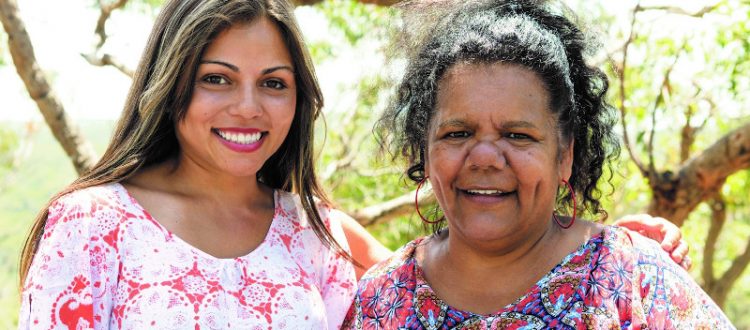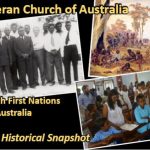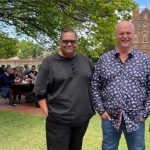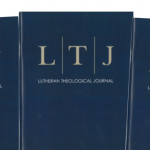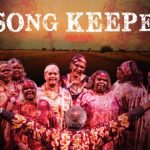Reconciliation action is everyone’s business
by Marilyn Wall
The Lutheran Church of Australia’s vision for reconciliation between Aboriginal and Torres Strait Islander peoples and non-Indigenous Australians is inspired by the gospel of reconciliation in Jesus Christ and is empowered by the work of the Holy Spirit.
That vision, as expressed in the LCA Reflect Reconciliation Action Plan (RAP) Vision Statement 2020, is ‘to bring to life an expression of our ministry that helps all peoples recognise, understand, value and respect the histories, cultures, lands and contributions of First Nations peoples, as we honour our common humanity and provide each other with equal opportunity to flourish, together, growing as God’s people’.
This is not new. On a personal level, our life as Christians calls us to do this very thing as we express ourselves as God’s children in our relationships with one another. We serve and are served equally, as we all were created and baptised in Jesus’ name.
The church’s commitment at the 19th General Convention of Synod in 2018 to embark on a RAP is a pledge to use a tailor-made planning tool to assist in our journey of reconciliation. This planning tool has been developed by Reconciliation Australia, the lead body for reconciliation in the nation. Across all areas of our ministry, this Synod resolution focuses on recognising the reconciliation journey thus far and seeks to further strengthen respectful relationships with First Nations peoples. We will all do this in our unique ways. Raising awareness in this space is an important step.
Understandably, many people are unfamiliar with the notion of a RAP. A RAP focuses on intentional and affirmative actions that can assist in breaking down unfamiliarity about Aboriginal and Torres Strait Islander peoples, their histories, cultures, connection to land and contributions, in particular as they relate to our church. This leads to increasingly meaningful relationships with First Nations peoples.
There are three core pillars to any RAP – relationships, respect and opportunities. RAP actions and achievements, known as deliverables, fall into one of these three pillars – each pillar strengthening the other. Our RAP requires the identification of a small number of actions and a commitment to aligned deliverables that focuses on:
Relationships: Relationships are at the heart of reconciliation. The primary purpose of the LCA RAP is to develop churchwide opportunities for the church to build upon its solid foundation of respectful and dignified relationships between Aboriginal and Torres Strait Islander peoples and the broader LCA community. When we get to know each other in mutual partnership, attitudes and behaviours toward each other improve and better outcomes are achieved.
Respect: Understanding of and respect for Aboriginal and Torres Strait Islander cultures, rights and experiences underpin progress toward reconciliation. Without respect for Aboriginal and Torres Strait Islander ways of doing things, respectful non-discriminatory relationships are unable to be built and flourish. Only with pride in Aboriginal and Torres Strait Islander cultures and heritage, are we able to foster a truly shared national identity across our church. Many of us can connect to First Nations peoples in the Lutheran communities of the far west coast of South Australia, or Central Australia in Alice Springs and more isolated communities in the care of the Finke River Mission, or Far North Queensland. But closer to home, are we fully aware of First Nations people who may be in our congregations and ministry spaces, or who may be providers or recipients of our services? We may not be because they may not have chosen to share their cultural heritage. In the act of reconciliation, what can you and I do differently to make people feel culturally safe to share?
Opportunities: Respectful relationships form the basis for tackling this challenge. When we work together to craft culturally appropriate solutions to matters that are relevant to First Nations Peoples, we can help create the right environment to identify a range of possibilities and opportunities. This encourages and enables Aboriginal and Torres Strait Islander peoples to more fully engage and contribute towards service and church leadership in a meaningful way.
The LCA General Church Board (GCB) has oversight of the RAP process. The church has first embarked on developing a Reflect RAP. This scoping plan sets out the steps to be taken to prepare for reconciliation initiatives, laying the foundation for progression onto further RAPs.
Over the next 12 to 18 months, having continued to engage in conversation and hearing from a breadth of voices, our church will be in a more informed position to proceed to the second or implementation stage – an Innovate RAP. An Innovate RAP outlines actions that work towards achieving the church’s unique vision for reconciliation.
An external RAP Working Group, which is inclusive of both First Nations and other Australians, is formed in preparation for the Innovate RAP. Among this group’s priorities is to propose actions and strategies to support non-Aboriginal people to gain insight into what is important to First Nations peoples. It will also aim to create opportunities to encourage and enable the meaningful service and leadership of First Nations peoples in all aspects of church life in the LCA. Naturally, the RAP Working Group’s proposals will be presented for ratification by the church.
So where are we now? The first draft of the LCA Reflect RAP has received GCB’s approval and has been conditionally endorsed by Reconciliation Australia. We are now in stage two of the endorsement process, which likewise requires the approval of GCB and endorsement of Reconciliation Australia. Once finally endorsed, the RAP then will become a public declaration of the commitment made at the 2018 Synod.
In the interim, conversations have been ongoing with LCA Churchwide Office departments which are seeking to understand how they can shape, support and champion the actions of the church’s RAP through their spheres of influence.
A particular strength of the RAP process is the inbuilt accountability that requires regular progress updates towards identified commitments.
Reconciliation is a journey, not a destination. It is the good news of Jesus’ saving love that makes reconciliation everybody’s business, and our mission to share that gospel invites us to share this journey.
Marilyn Wall is the LCA’s RAP Project Officer.

